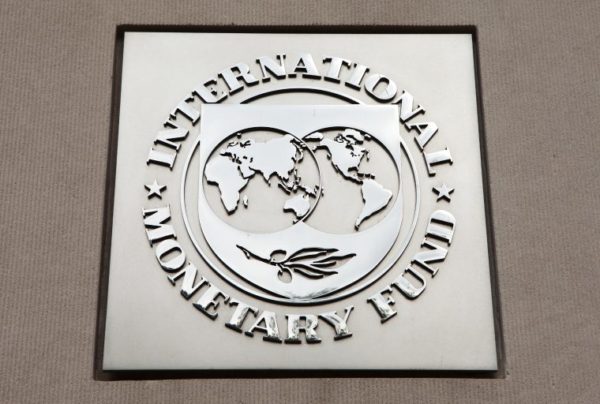The International Monetary Fund (IMF) has advised global creditor nations to restructure debts for developing countries.
IMF Managing Director, Kristalina Georgieva, broke the news during her opening remarks at the ongoing World Bank/IMF Spring Meetings in Washington D.C.
She said that low-income countries are particularly vulnerable given high debts and per capita income growth lag, making it harder and harder for them to catch up.
Speaking on the theme: The Path to Growth: the IMF boss explained that for the most vulnerable members of the global family, additional support from the international community, especially through debt restructuring is essential.
Georgieva said: “I am making a double plea on their behalf: help them resolve crushing debt burdens; and help ensure that the IMF can continue to support them going forward.”
She however, admitted that the Global Sovereign Debt Roundtable is making tangible progress.
Co-chaired by IMF, the World Bank, and India as G20 Chair, this forum brings together public and private creditors, as well as borrowers, to accelerate restructuring cases, including those under the G20’s Common Framework.
According to her, the roundtable met on Wednesday in Washington D.C, and she was encouraged by the positive outcomes.
“First, we agreed to improve information sharing on macroeconomic projections and debt sustainability assessments at an early stage in the debt restructuring process. Second, we have reached a common understanding on the role that MDBs can play, notably through the provision of positive net flows of concessional finance. And, third, we will pursue a work-stream, including a workshop to be organized in the next weeks, on how to assess and enforce comparability of treatment,” she stated.
She said the key players also discussed urgent funding gaps in the Poverty Reduction and Growth Trust.
“IMF concessional financing has increased more than four-fold since the onset of Covid. Coming into these meetings, we had been calling for $4.7 billion in loan resources and $1.6 billion in additional subsidy resources to maintain this interest-free support,” she said.
“I am very encouraged that some of our economically stronger members are already stepping up. Just in the past few days five countries—Ireland, Japan, Portugal, Saudi Arabia and the UK—have all come forward with substantial new pledges or contributions,” she stated.
On the economic status of poor economies, Georgieva said the latest World Economic Outlook, projected global growth to slow down to 2.8 per cent in 2023 and remain weak, at around three per cent, over the next five years.
“This is the weakest medium-term forecast in decades. Underlying inflation remains stubbornly high, geo-economic fragmentation affects trade and capital flows, and downsides risks have increased. Fighting inflation and safeguarding financial stability have become more complex with the recent banking sector pressures,” she said.
In this environment our Global Policy Agenda concentrates on the path to restoring both short- and medium-term prospects for sustainable and inclusive growth.
She said the Funds three priorities are restoring price stability and safeguarding financial stability as prerequisites for return to robust growth.
“So long as financial pressures remain limited, we expect central banks to stay the course in the fight against inflation—holding a tight stance to prevent a de-anchoring of inflation expectations.
She said further effort to reduce budget deficits is critical to support the fight against inflation and reduce debt, but this must be coupled with targeted support for the most vulnerable.
“And central banks should address financial stability risks where they emerge, working closely with regulators and supervisors. The key is to monitor risks that may be hiding in the shadows in banks and non-bank financial institutions, or in sectors such as commercial real estate. Vigilance is imperative,” she said.
Georgieva also called for rebuilding the foundation to sustain future prosperity—by acting now to advance structural transformations and counter fragmentation.
“Think of steps to accelerate the digital revolution, improve the business environment, and boost human capital and inclusion. And think of the green energy transformation. An estimated $1 trillion a year is needed for renewable energy alone. That will pay dividends in terms of growth and jobs,” she said.
She called for solidarity with the most vulnerable countries. The IMF has provided nearly $300 billion in new financing for 96 countries—more than half our members—since the start of the pandemic. Just in the six months since our Annual Meetings our Board has approved 23 new arrangements.
“Nearly half of our financing commitments in the past three years have been done through our precautionary facilities—like the one approved for Morocco last week. They serve as an additional buffer to countries with strong economic fundamentals,” she said.



